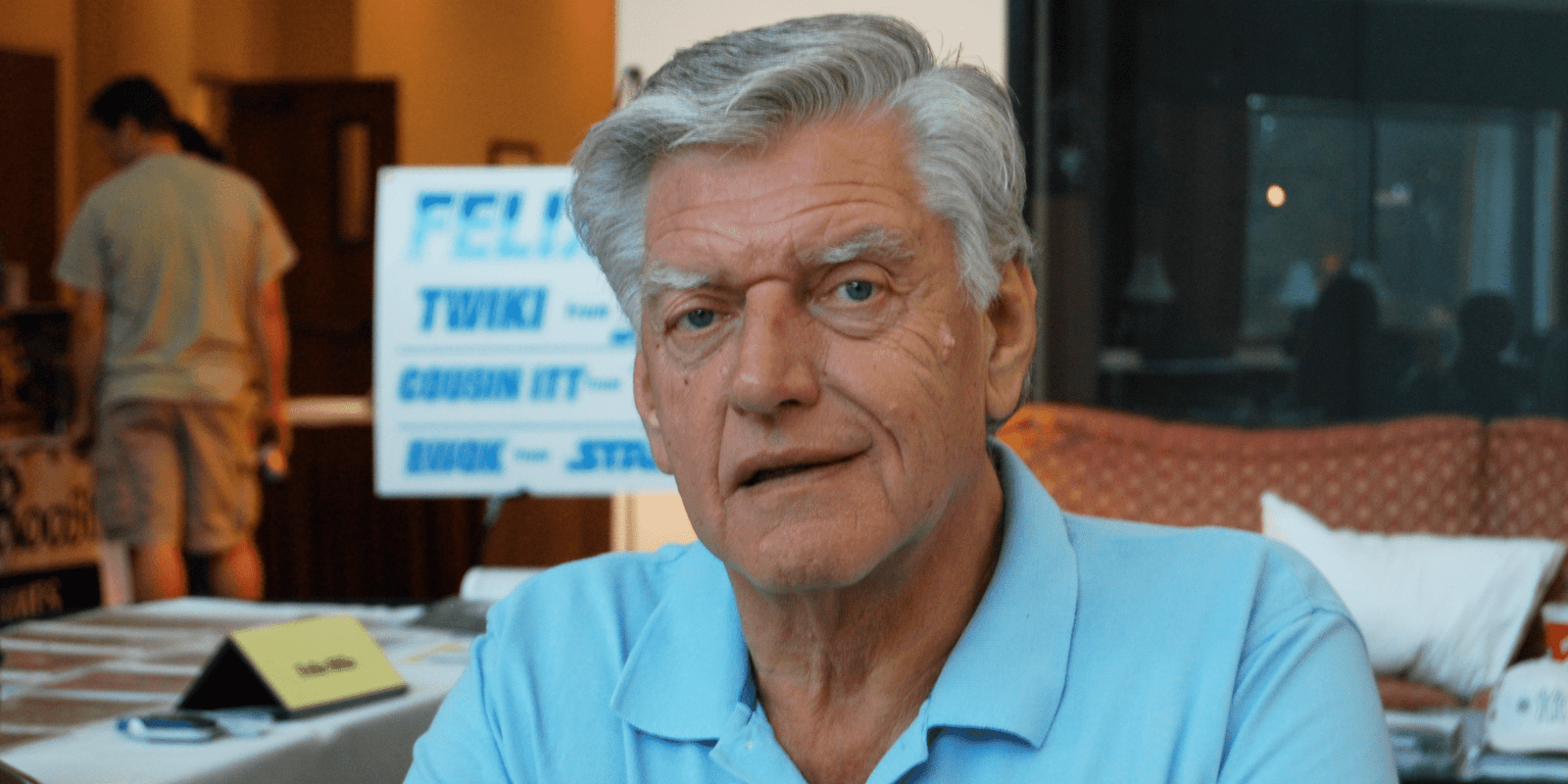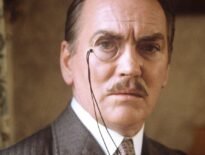David Prowse, who died last month, enjoyed a very particular form of success. For a time, he was the most distinctive figure in one of the most successful films in history, yet he lived his daily life free from the casual scrutiny that usually afflicts the famous.
David Charles Prowse, born in 1935, grew up on the Southmead Estate in Bristol. His father died when he was five, so it was his mother who raised him – and to quite a height, as he stood six feet seven by his late teens. Prowse won a scholarship to Bristol grammar school. At 16, he took up bodybuilding, perhaps partly in reaction to having been a sickly child (from 15, he wore a surgical appliance because of suspected tuberculosis of the knee). When he was 25, he entered the Mr Universe competition but was told he would never win because he had ‘ugly feet.’ This dream cruelly destroyed, Prowse took up competitive weightlifting and became British heavyweight champion in 1962. He would retain the title for three years.
It was during his time in the weightlifting game that Prowse first heard the call of the stage. His first role was Death in a production of Don’t Let Summer Come at London’s Mermaid Theatre. After that, he was offered parts in commercials, TV shows, and the cinema. His roles in the cinema included playing a bodyguard in Kubrick’s A Clockwork Orange, the Black Knight in Terry Gilliam’s Jabberwocky, a role in Carry On Henry, and a couple of Hammer horrors. He still found time to open a gym in 1969.
On TV, he worked with Benny Hill and played in The Tomorrow People, Space: 1999 and, of course, the minotaur in the 1972 classic Doctor Who story, The Time Monster. This was the final story of Jon Pertwee’s third season, featuring hijinks with the Master, Atlantis, and the time god, Kronos. The series, described by the venerable Discontinuity Guide as ‘like watching paint dry while being whipped with barbed wire,’ also featured another Hammer veteran, Ingrid Pitt.
In 1975, he began his second most famous, but arguably most important role: The Green Cross Code Man. This superhero for children’s road safety resulted in an MBE for Prowse but, far more importantly, helped reduce traffic accidents among 4-11 year-olds by 5% in just his first two years. He would appear on TV and tour schools for 15 years.
But it was in 1977 that Prowse landed his most famous but also his most frustrating role: the villainous Darth Vader in Star Wars. It’s well known that Prowse did not voice the character, that role going to James Earl Jones because George Lucas didn’t find Prowse’s Bristolian burr sufficiently menacing (his fellow cast members affectionately called him ‘Darth Farmer’). It’s less well known that, after the first film, Prowse didn’t film many of the fight scenes, either. Nor did he provide the iconic heavy breathing or even get to be the unmasked face of Anakin Skywalker in Return of the Jedi in 1983. It’s also sadly true that Prowse’s relationship with the studio and George Lucas declined over the years – there were accusations and counter-accusations of plot leaks and bad faith – so that Prowse was excluded from certain high profile events. But the fans kept the faith and Prowse was guaranteed a warm reception at conventions for the rest of his life.
Prowse had a few more roles after Star Wars; he helped train Christopher Reeve for Superman and he played a bodyguard in the BBC TV version of The Hitchhiker’s Guide to the Galaxy. Sadly, he began to suffer from ill health, including arthritis, spine problems, and a blood disease that caused temporary paralysis in his arms, so was unable to work much from the ’80s on. He briefly managed the Welsh musician Jayce Lewis, featuring in the music video for his song, Shields. In 2015, he appeared in the documentary, Straight from the Force’s Mouth (also the title of Prowse’s autobiography, published in 2016). In it, he was able to voice Vader’s lines for the first time as they would have sounded in the film. Perhaps this, and appearances in fan productions, helped to quell the frustrations he had about the role:
As Darth Vader, you always feel as if fame and fortune’s coming towards you, but, just as it’s going to hit, it passes you by… Sometimes in the cinema, I want to yell out: “Hey, that’s me up there, that’s me you’re all watching.”
David Prowse died on the 28th November 2020. He is survived by his wife, Norma Scammell, whom he married in 1963, and their three children, Steve, James, and Rachel.






